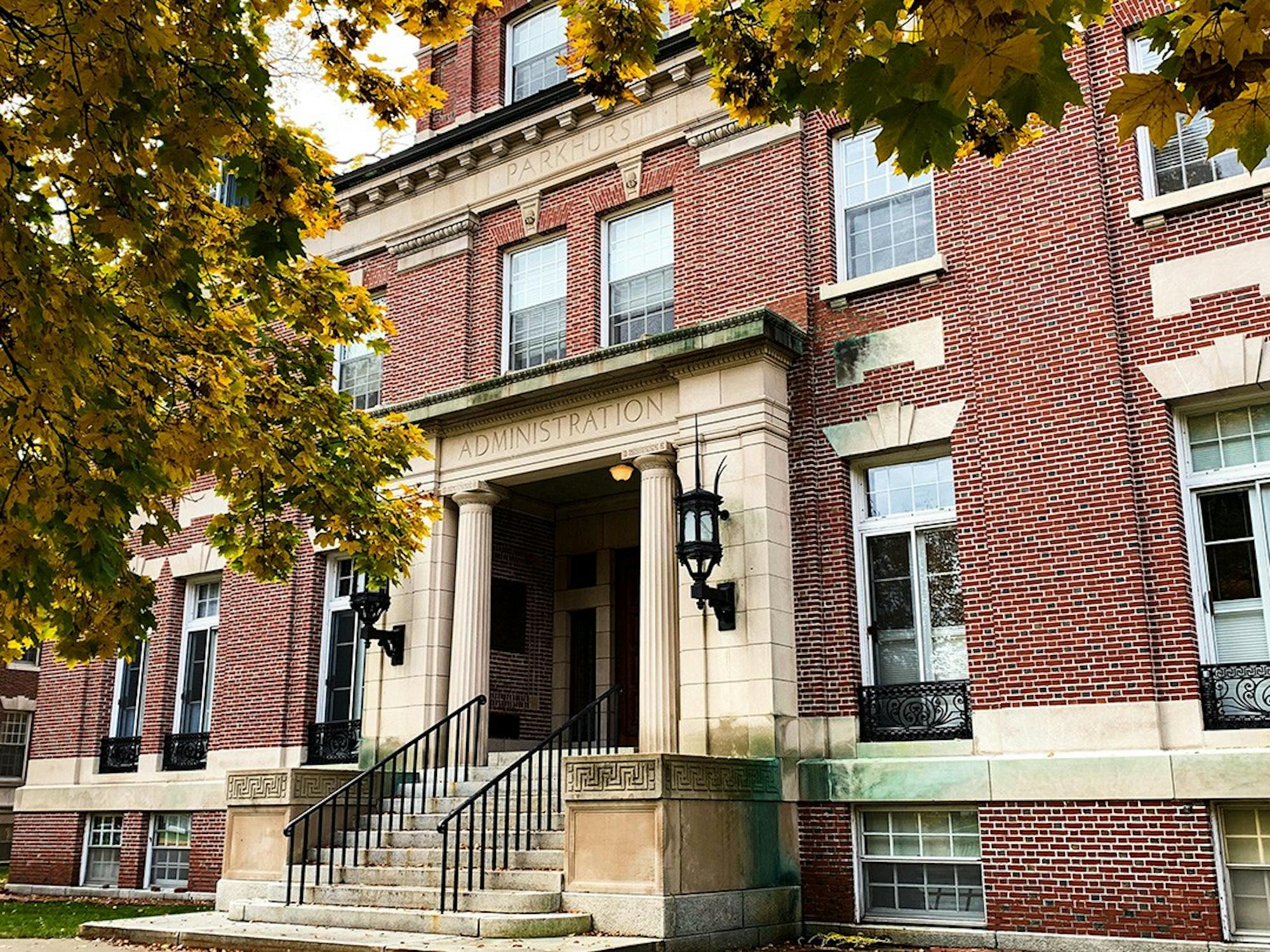The Undergraduate Finance Committee released its funding allocations for undergraduate student life organizations for the 2022-23 fiscal year in a May 24 press release. The press release announced a $1,352,000 budget for the current fiscal year — marking a $102,000, or eight percent, increase in UFC funding compared to that of the last fiscal year — and increased the annual allocation for eight of 10 organizations funded by the UFC.
“The allocations for FY 22-23 were slightly larger than the general trends seen from previous years and most organizations are receiving increases,” the UFC wrote in the press release.
According to the release, Programming Board received $385,000; the Council on Student Organizations received $311,000; the Special Programs and Events Committee received $215,000; Collis Governing Board received $104,000; Dartmouth Outing Club received $67,500; Greek Leadership Council received $64,000; Student Assembly received $61,000; Club Sports received $57,500; Bonfire received $57,000; and Class Council received $30,000. Unlike the first eight organizations, the latter two organizations did not ask for — and therefore did not receive — additional funding.
PB’s budget increased more than $40,000 from last year, while COSO and SPEC received allocation increases of around $15,000. The budgets of Club Sports, CGB, DOC, GLC and SA increased a few thousand from last year’s allocations. Prior to this, the budget was last reallocated for the 2019-2020 fiscal year.
Though the UFC is charged with allocating funding, the College first decides how much money the committee is able to disseminate, UFC chair Zippy Abraham Paiss ’23 said. Once a figure has been decided, the UFC chair, six at-large members and nine organizational representatives of the UFC deliberate on how to best distribute the year’s funds, Abraham Paiss added.
For organizations which received a boost in funding, reasons included growing student involvement, new program initiatives and — most commonly — rising prices, according to the press release. The UFC specifically increased at least four organizations’ budgets in part because of rising inflationary costs.
According to the press release, UFC had expanded Programming Board’s budget due to “the importance of PB events for campus traditions and … to meet inflation.”
Emma Elsbecker ’24, Programming Board’s representative to the UFC, said that her organization’s rising budget was “all linked to inflation,” as costs in the concert sector have soared.
“The budget increase in PB is simply to continue the quality of events we have put on — not to expand or do anything greater than we already have,” Elsbecker said. “This is simply maintenance, and we’re trying to keep things as cheap as possible, doing as much labor ourselves as possible.”
Elsbecker said that PB’s budget, which helps to fund a number of notable student experiences such as Green Key, is indicative of the organization’s large role on campus.
“The budget increase really reflects the desire for Programming Board to be able to support those experiences without having to curtail them,” Elsbecker said.
Alyssa Lebarron ’24, the summer chair of the GLC, said she was excited to see her organization’s budget increase for next year.
“I’ve seen costs increase in my own [Greek] house events, so I’m looking forward to being able to fund the same amount of events as we go forward,” Lebarron said.
In finalizing the GLC’s budget for the upcoming fiscal year, the UFC wrote that the organization “received allocation increases to meet inflationary costs of project funding, particularly the rising cost of catering in the Upper Valley.”
Although the GLC will be receiving $3,000 more than it had in the previous fiscal year, Lebarron said she expects to fund a similar number of events rather than expand event coverage, due to rising prices.
“[Next year is] probably going to be the same amount of events … and, if it’s correctly proportioned, the same quality of events,” Lebarron said. “I think, at least for the catering side, I, as a member of my chapter, have seen an increase in costs to run events. So, I think it’s not going to lead to an overall increase of events.”
According to GLC representative to the UFC Brandon Zhou ’22, who helped to increase the GLC’s budget for the current fiscal year, the funding process made his organization refocus their efforts on substantive programming. Zhou said he hopes the GLC commits itself more toward sexual violence prevention and diversity and inclusion initiatives.
“I think it’s about using our money in a more effective and efficient way,” Zhou said.
Correction Appended (July 3, 11:26 a.m.): A previous version of this article incorrectly stated the positions of Lebarron and Zhou at the GLC. The article has been updated.




